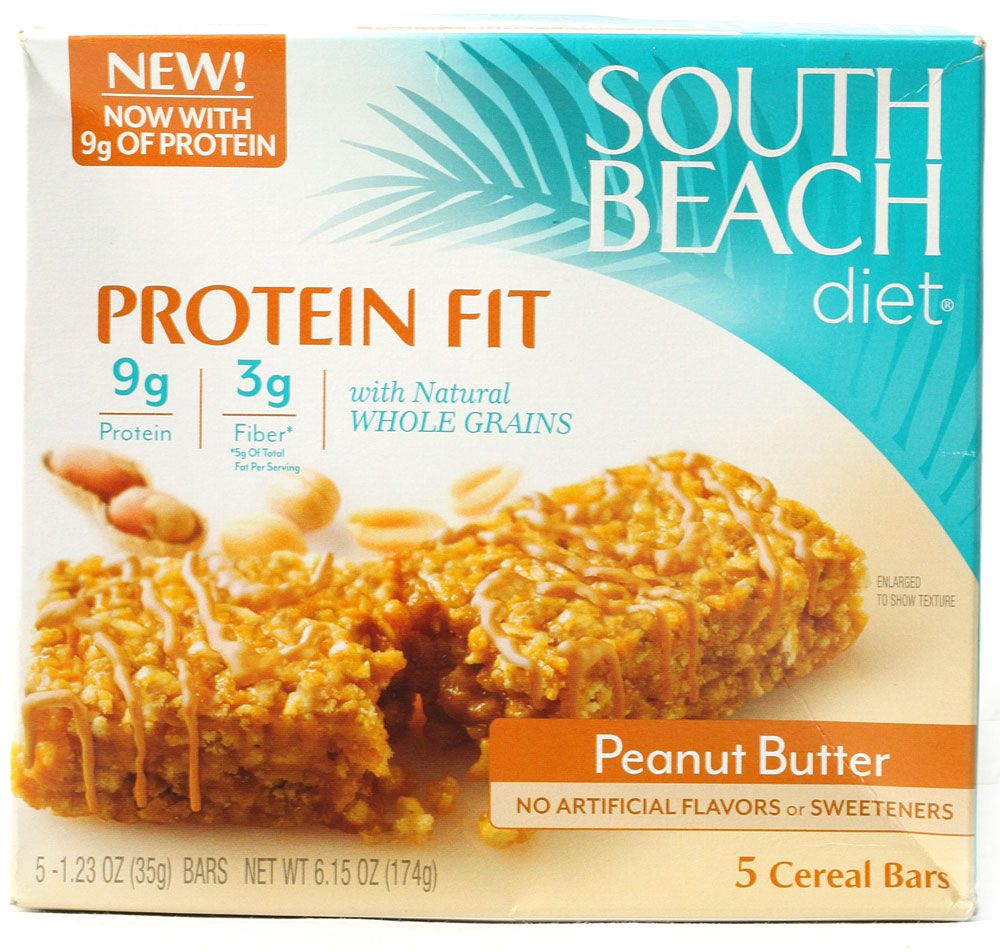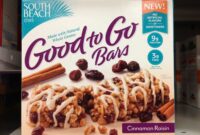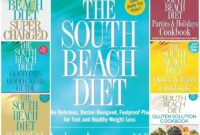South Beach Diet protein shakes offer a convenient way to incorporate the principles of this popular weight-loss plan into your daily routine. This guide delves into the nutritional composition, health benefits, and potential drawbacks of these shakes, providing a comprehensive overview for those considering their inclusion in a weight-management strategy. We’ll explore various recipes, compare them to other weight-loss approaches, and address common concerns.
Understanding the South Beach Diet’s emphasis on low-glycemic carbohydrates and healthy fats is crucial when evaluating these protein shakes. We’ll examine how different protein sources, sweeteners, and added fibers contribute to the overall nutritional profile and impact on blood sugar levels. The goal is to equip you with the knowledge needed to make informed decisions about integrating these shakes into your diet.
South Beach Diet Protein Shakes
The South Beach Diet is a popular weight-loss plan emphasizing a balanced approach to nutrition, focusing on limiting refined carbohydrates and unhealthy fats while prioritizing lean protein, healthy fats, and complex carbohydrates. Its core principles revolve around stabilizing blood sugar levels, promoting satiety, and encouraging sustainable weight management. The diet progresses through phases, gradually reintroducing certain foods as weight loss progresses.
Protein shakes play a significant role in the South Beach Diet by providing a convenient and efficient way to incorporate sufficient protein into the daily intake. They can help manage hunger, support muscle maintenance during weight loss, and contribute to overall dietary adherence. Their portability and quick preparation make them an ideal option for busy individuals or those seeking a simple, protein-rich meal or snack.
South Beach Diet Protein Shake Nutritional Composition
South Beach Diet-compliant protein shakes typically feature a high-protein content derived from sources like whey protein isolate (due to its low lactose content and rapid digestion), casein protein (for slower digestion and sustained satiety), or soy protein (a plant-based alternative). Carbohydrate content is generally low and sourced from complex carbohydrates like oats or berries, avoiding simple sugars. Fat content is moderate, often including healthy fats from sources such as flaxseed or chia seeds. Artificial sweeteners are sometimes used to control sweetness while minimizing added sugar.
Example South Beach Diet Protein Shake Nutritional Label
| Serving Size | 1 scoop (30g) |
|---|---|
| Calories | 150 |
| Total Fat | 3g |
| Saturated Fat | 1g |
| Cholesterol | 5mg |
| Sodium | 100mg |
| Total Carbohydrate | 5g |
| Dietary Fiber | 2g |
| Total Sugars | 1g |
| Protein | 25g |
| Vitamin D | 2mcg (8% DV) |
| Calcium | 100mg (10% DV) |
| Iron | 1mg (5% DV) |
| Potassium | 100mg (2% DV) |
Note: DV = Daily Value. Nutritional values are approximate and may vary depending on specific ingredients and manufacturer.
Ingredient Analysis of South Beach Diet Protein Shakes
South Beach Diet protein shakes aim to provide a convenient and nutritionally balanced way to incorporate protein into a diet focused on managing blood sugar levels. Understanding the ingredients is key to evaluating their suitability for individual dietary needs and goals. This analysis will explore the common protein sources, sweeteners, added fibers, and overall composition of these popular shakes.
Protein Sources and Nutritional Profiles
South Beach Diet protein shakes typically utilize a blend of protein sources to offer a complete amino acid profile. Common sources include whey protein concentrate, whey protein isolate, and casein protein. Whey protein, derived from milk, is a fast-digesting protein, meaning it’s quickly absorbed by the body. This makes it ideal for post-workout recovery. Whey isolate has undergone further processing to remove lactose and fat, resulting in a higher protein concentration. Casein protein, also from milk, is a slow-digesting protein, providing a sustained release of amino acids over time. The specific ratio of these proteins can vary between different South Beach Diet shake flavors and formulations. Nutritional profiles will differ based on the protein source and the overall formulation of the shake. For instance, whey isolate will generally be higher in protein and lower in fat and carbohydrates compared to whey concentrate. Nutritional information is typically available on the product packaging and website.
Impact of Sweeteners on Glycemic Index
The glycemic index (GI) measures how quickly a carbohydrate-containing food raises blood glucose levels. South Beach Diet shakes often employ artificial sweeteners like stevia and sucralose to minimize their impact on blood sugar. Stevia is a natural, plant-based sweetener, while sucralose is a synthetic sweetener. Both have a very low GI, meaning they cause minimal spikes in blood glucose compared to sugar. The use of these sweeteners contributes to the diet’s focus on blood sugar control. However, it’s important to note that individual responses to sweeteners can vary.
Role of Added Fibers and Health Benefits
Many South Beach Diet protein shakes incorporate added fibers, such as inulin or chicory root fiber. These fibers contribute to increased satiety, helping to manage appetite and promote feelings of fullness. Fiber also plays a crucial role in digestive health, supporting regular bowel movements and promoting gut microbiome diversity. The added fiber in these shakes can contribute to improved overall digestive well-being and help individuals feel more satisfied between meals. Different fiber sources offer varying benefits; some are prebiotics, feeding beneficial gut bacteria.
Comparison of Ingredient Lists
The following table compares the ingredient lists of three hypothetical South Beach Diet protein shake flavors (actual brand names are omitted for illustrative purposes only). Note that ingredient lists can vary by flavor and formulation.
| Shake Flavor | Protein Source | Sweetener | Added Fiber |
|---|---|---|---|
| Chocolate | Whey Protein Concentrate, Whey Protein Isolate | Sucralose, Stevia | Inulin |
| Vanilla | Whey Protein Concentrate, Casein Protein | Sucralose | Chicory Root Fiber |
| Strawberry | Whey Protein Isolate | Stevia | Inulin, Cellulose |
Outcome Summary
Ultimately, the effectiveness of South Beach Diet protein shakes depends on individual factors and their integration into a holistic weight-management plan. While they can be a useful tool for weight loss and managing hunger, they should not replace a balanced diet and regular exercise. Careful consideration of potential risks and benefits, along with mindful ingredient selection, are key to maximizing their positive impact and minimizing any potential downsides. Remember to consult with a healthcare professional or registered dietitian before making significant dietary changes.




